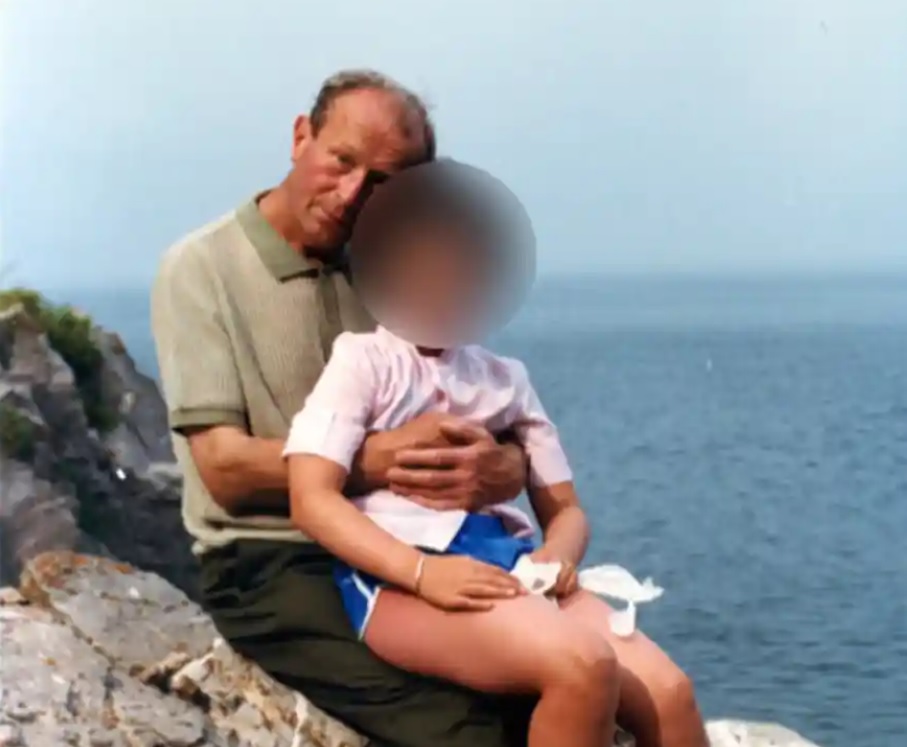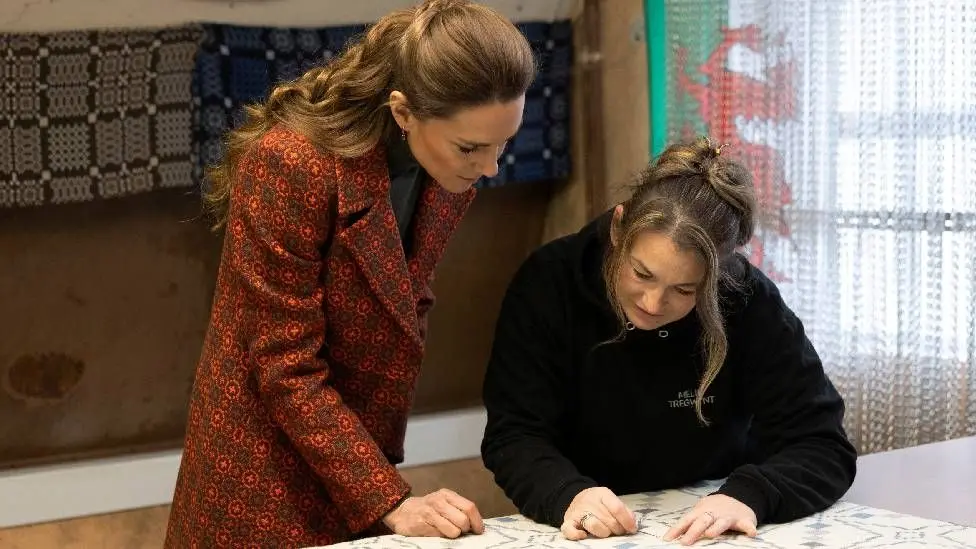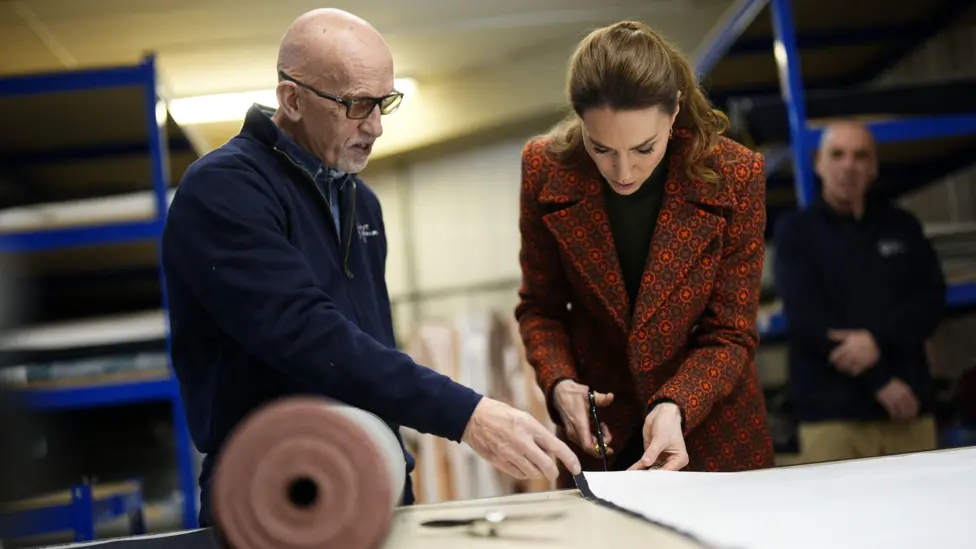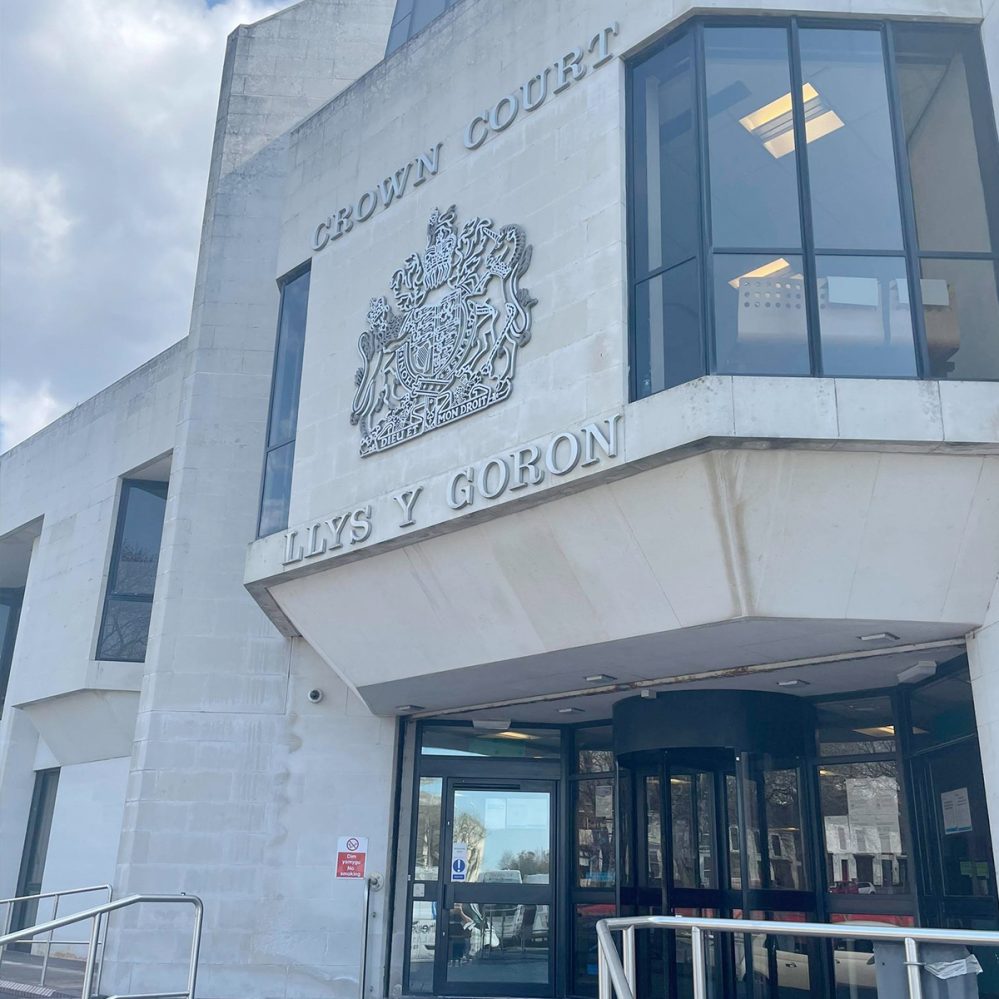News
Senedd to decide on Caldey Island sex inquiry as petition reaches 5000 signatures

A PETITION signed by over 5,000 people calling for a probe into child abuse allegations on a Pembrokeshire island, has led to a debate in the Senedd tomorrow (Monday, Nov 1)
The petition has been submitted by Kevin O’Connell, who says he is the victim of child abuse by priests and monks.
He says that he wants to persuade the Welsh Government to told an inquiry into the historic child abuse on Caldey Island.
He said: “Victims need the truth and answers as to why an ongoing investigation for 29 years has failed the victims. The inquiry will help to safeguard children in the future.”
In 2017 it came to light that the island has a long history of child sexual abuse after six women received compensation from the island’s abbey after being abused by Kotik. There are 21 victims who have now come forward and reported similar offences to Dyfed Powys Police with cases going back to the 1960s.
On a family holiday to the island when he was six years old, Kevin O’Connell said that he met the monk, Kotik. He said that they became friends and he began spending time alone with him.
“Caldey Island was a paradise. It was beautiful. I played with other children, the beach, volleyball and football, it was special. Father Thaddeus became very special to me, and he gave me the love I didn’t get at home from my Dad.”
Kotik, a former soldier who fought for the Free Polish army during the Second World War, moved to the island in 1947 and joined the strict Cistercian Order.
The monk was ordained a priest in 1956 and lived on the island until his death in 1992. It appears he was never questioned by police, who were not informed of allegations against him until 2014.
After the holiday Kevin says that Kotik kept in touch with him and sent him photos of Caldey Island in the post.
After becoming an altar boy he went on several more holidays to Caldey Island, arranged and funded by his local Catholic Church.
He never told his parents what Kotik did to him.
In 2019 Brother Daniel van Santvoort was asked for his response to the latest evidence that Kevin O’Connell was also abused on the island. Despite contacting the Brother several times, he never responded.

SENEDD TO DECIDE ON INQUIRY
The petition coordinator says that there is a lack of accountability of the Cistercian Order of Caldey Abbey, and that victims have lost faith in the police investigation, that the local police have a conflict of interest and that the police have failed to conduct a full investigation.
A report submitted to the Welsh Government by Dinah Mulholland, Coordinator, Caldey Island Survivors Campaign makes shocking reading. He says: “Solicitors Michael Imperato and David Greenwood, acting on behalf of Caldey Island victims, both consider that from the scale of abuse reported by victims that it was perpetrated on an industrial scale, and that it is likely that Caldey was a hub for paedophiles.
“It is our opinion that it is likely that Caldey Island is known within paedophile networks as a safe place to be shielded, with the opportunity to perpetrate active or online abuse whilst on the island.
The abuse on Caldey could potentially be on a very significant scale. Over the decades there have been:
- children who came on holiday with their families; referrals from RC churches in Wales and across the UK who came without their parents;
- a primary school on the island and a reform school on the island.
Supporting documents show that the key messages from the campaign to the Petitions Committee are:
“That we are currently occupied with attempting to discover, on a voluntary and part-time basis, the scale of abuse by known and by other potential perpetrators. This is a huge job, it exceeds our capacity, and properly falls within the remit of the police or a public inquiry.
“We would urge the Senedd to hold a public inquiry into the abuse, and institutional facilitation/cover up of abuse by the Abbey, on Caldey Island. This inquiry, in our opinion, would need to consider any failings by statutory authorities to protect children who stayed on or visited the island, and any failings in investigations into the abuse. It would also need to consider the structural issues of the autonomy and lack of accountability of the Cistercian Order as it operates within Wales.
“If a public inquiry is unlikely to fall within Senedd powers or remit, or the Senedd considers that there is not enough evidence for a public inquiry to be warranted, then we would like to request that Welsh Government recommend a full and thorough investigation, by an external police force with expertise in large scale historic child sexual abuse, takes place.
“That may reveal the new information that would be required for a public inquiry.”
LAW SPECIALIST
Michael Imperato, Director & Head of Public & Administrative law at prominent Cardiff law firm Watkins & Gunn has advised that there are a number of reasons why a Public Inquiry is the only proper process that should be followed:
The advice is as follows:
“The Deputy Minster refers on a number of occasions to police investigations. The police are one of the bodies who would be significantly scrutinised by any such inquiry. There are various allegations by victims, which may or may not be unfounded, as to police complicity in “turning a blind eye” or subsequent “cover ups”. Numerous inquiries take place where there have been previous police investigations (Saville, Orgreave, IICSA, Infected Blood, Shipman) – often the investigation undertaken by the police is proved to be wholly inadequate. This is not a reason against a public inquiry.
“Child safeguarding is a critical issue and is of course devolved. It was common during the time that the sexual abuse was being undertaken, for Catholic schools in Wales and in England to send children to the island and for the Local Authority to allow – even to actively promote – holidaying families (with of course young children) to visit the island. Many of those children will then have been victims of abuse. Therefore, issues arise as to what schools and Local Authorities actually knew as to what was happening on Caldey, what steps did they take – or more pertinently – not take? Lessons must be learnt to ensure children are properly protected today.
“The Catholic church is quite obviously culpable and has a case to answer. What did the church authorities in Wales know of the abuse that was taking place on Caldey Island? How did they interact with other authorities/public bodies in Wales?
“The fact that the Inquiry is touching on matters from some time ago, should not be a deterrent. I am currently acting for several hundred Welsh victims from the Infected Blood Scandal, which concerns a time period, primarily, in the late 1970s and early 1980s. It could be argued that the fact that the matter concerns events some years ago, means that it is even more urgent that such events are scrutinized at this time. Indeed, one of the terms of reference of the Infected Blood Inquiry is why it has taken so long for there to be a thorough investigation, what happened and why? Just because there has been no investigation to date does not mean that it should not be investigated now.”
CAMPAIGNERS ARE SAYING:
1)Twenty six individuals have now come forward as victims of the paedophile monks. The police have failed to undertake an overarching investigation which is now standard practice following ‘Operation Yewtree’ .
2) An outside force needs to investigate the lack of police action as victims no longer trust that Dyfed Powys police will be willing to shine a spotlight on their friends at the Abbey. Why do I write ‘friends’? The lead chaplain of Dyfed Powys Police is the dean of Pembroke who has Caldey Island within his parish. The monastery appointed a safeguarding person but he is a former member of the south Wales police, turned monk and is a director of the estate of Caldey Island so it might be difficult to see him as independent.
3)Solicitors acting on behalf of the survivors believe Caldey was not just home to one paedophile monk but a hub for paedophile monks where they could come and go as they please and even hide away from police, which has been proven.
4) The police are failing in their duty of care not only towards past victims but also by not having any officers patrolling the island amongst the thousands of tourists visiting currently. The Cistercian order did not report past crimes against children to the police, yet are deemed adequate to safeguard children today by the police force failing to investigate properly.
(Cover photo: Father Thaddeus Kotik photographed with a child on Caldey Island, Wales, in the early 1980s.)
Community
Princess of Wales praised for ‘skill’ during local wool mill and factory visit

Royal tour shines spotlight on west Wales textile heritage and local jobs
CATHERINE, Princess of Wales was told “she’s got the skill” after trying her hand at traditional textile work during a visit to west Wales on Tuesday (Feb 3).
The royal spent the day meeting staff and apprentices at two well-known manufacturers – Melin Tregwynt in Pembrokeshire and Hiut Denim in Cardigan – highlighting the region’s long-standing reputation for craftsmanship and small-scale, high-quality production.
Stitching and mending at historic mill

At Melin Tregwynt, a family-run woollen mill that now operates as an employee-owned trust, the princess was guided through each stage of production, from weaving to finishing.
In the quality control room she was invited to mend a blanket using a needle and thread, carefully repairing the fabric under the watchful eye of experienced staff.
Paula Harding, who has worked at the mill for more than a decade, praised her technique, saying: “She did it right – and she didn’t go through the other side. That’s skill. She’s got the skill.”
Laughing, the princess told workers: “You make it look so easy,” adding that the craft was clearly “a labour of love”.
She asked questions about the history of the business, which has produced Welsh-designed blankets and throws for more than a century, and spoke with several generations of the same families who have worked at the mill.
‘Made in Wales’ denim

Later, the princess travelled to Hiut Denim, the Cardigan-based firm credited with bringing jeans manufacturing back to the town after large factories closed in the early 2000s.
The company now focuses on small-batch, premium denim and employs skilled cutters and machinists locally.
During a tour of the factory floor, the princess tried cutting out a pair of jeans and helped stitch a “Made in Wales” label onto a finished pair that staff said would be presented to the Prince of Wales.
“He will love those,” she replied.
She joked that there was “no pressure” when handed the cutting tools and said she enjoys making clothes herself, admitting the most adventurous project she had attempted was sewing a pair of pyjamas.
The royal also stopped to greet Barney, the factory’s English cocker spaniel, drawing smiles from staff.
Meeting well-wishers

Crowds gathered outside both sites to catch a glimpse of the visitor, with the princess spending time chatting with families and children before moving on.
The visit forms part of ongoing efforts by the royal household to showcase traditional industries and skilled manufacturing across the UK, with west Wales’ textile sector recognised as a key part of the region’s heritage and economy.
For workers at both businesses, the message was simple: the spotlight on locally made products and homegrown skills was just as important as the royal presence itself.
Crime
Man spared jail after admitting child abuse image offences

Police seized devices after intelligence linked Pembrokeshire address to illegal cloud storage accounts
A 23-YEAR-OLD Pembrokeshire man has avoided immediate custody after admitting making and possessing indecent images of children, including extreme bestiality material.
Ryan Beale, aged 23, appeared at Swansea Crown Court for sentencing this week.
At his first hearing, before magistrates on December 31, he entered guilty pleas and being granted conditional bail.
The court heard the case followed an intelligence-led police investigation linking Beale to a Dropbox account suspected of storing illegal material. Officers executed a warrant at his home on December 18.
During his arrest, Beale told officers: “I don’t use Dropbox,” claiming his email and Google accounts had been compromised.
However, police seized his mobile phone and computer equipment. A forensic examination found the email address connected to the Dropbox account stored on his device. Although the account had also been accessed from overseas locations, including Nigeria, investigators were satisfied it was controlled by Beale and linked to a larger cloud storage account containing significant volumes of illegal content.
Officers discovered 120 Category A images, 36 Category B images and 29 Category C images.
Category A represents the most serious level of abuse.
The material included extreme and disturbing bestiality content. Further Category C images were also located within the Dropbox account.
Two identified victims depicted in the images were girls aged nine and eleven.
Beale initially denied the allegations but later admitted the offences.
Passing sentence, at Swansea Crown Court on Tuesday (Feb 3) the His Honour Geraint Walters said: “This was not an innocent pastime. Every time an adult views that image, a child is still being abused.”
He added that an early guilty plea had spared Beale immediate custody but warned the offences would have lifelong consequences.
“The public have no time for anybody doing this,” the judge said. “If you’re doing this, the police will find out. They didn’t knock on your door randomly — they knew what they were looking for.”
Beale was sentenced to eight months’ imprisonment, suspended for two years. He must complete 20 days of rehabilitation activity and pay £300 in prosecution costs.
The court also imposed a Sexual Harm Prevention Order, ordered the forfeiture and destruction of his electronic devices, and placed him on the Sex Offenders Register for ten years.
“If you keep yourself out of trouble, you won’t have to serve that custodial sentence,” the judge told him.
Entertainment
One Night in Dublin returns to the Torch with a brand-new show

ONE NIGHT IN DUBLIN is heading back to the stage at the Torch Theatre with a lively new production fronted by renowned Irish singer Danny Muldoon.
Tickets are already selling fast for the feel-good celebration of Irish music, which promises two hours of songs, stories and plenty of craic.
Backed by an award-winning five-piece band, Muldoon leads audiences through a packed set of sing-along favourites including Galway Girl, Tell Me Ma, The Irish Rover, Dirty Old Town, Whiskey in the Jar, The Wild Rover and The Galway Shawl, along with many more well-loved classics.
The show recreates the atmosphere of a bustling Dublin pub, complete with fiddle, whistle, guitars, banjo, bodhrán, accordion and driving drums, transporting the audience straight into “Murphy’s Tavern” for an unforgettable night of live entertainment.
Fans can also expect hits from Irish legends including The Pogues, The Saw Doctors, The Dubliners, The Fureys, Flogging Molly and Dropkick Murphys.
One Night in Dublin comes to the Torch Theatre on Thursday, March 26 at 7:30pm.
Tickets cost £26.50. Visit the theatre website or call the Box Office on (01646) 695267 to book.

-

 Health5 days ago
Health5 days agoConsultation reveals lack of public trust in health board
-

 News6 days ago
News6 days agoCaldey still unsafe, survivors warn — despite Abbey’s reform claims
-

 Community6 days ago
Community6 days agoPembrokeshire students speak at national Holocaust Memorial Day event
-

 News6 hours ago
News6 hours agoPrincess of Wales visits historic Pembrokeshire woollen mill
-

 Crime4 days ago
Crime4 days agoPembroke man accused of child sex offences sent to Swansea Crown Court
-

 News6 days ago
News6 days agoKurtz raises Gumfreston flooding in the Senedd as petition deadline nears
-

 Community5 days ago
Community5 days agoCampaign to ‘save’ River Cleddau hits over 2,200 signatures
-

 Education6 days ago
Education6 days ago‘Vulnerable teen’ questioned by police at Milford Haven School

























